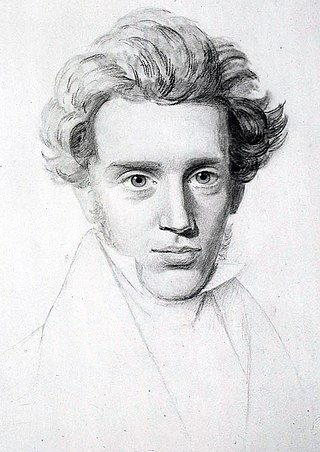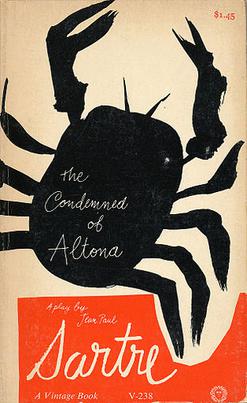Overview
The book focuses on an aged World War I veteran who recounts his life and adventures while traveling with a young man he meets after the two of them are thrown off a bus, the former leaving after the latter is refused entry, as the older man marches toward a visit with his granddaughter, neither knowing the outcome of their journey.
As a young man, Alessandro Giuliani foresees Italy's entry into the Great War and joins the navy rather than waiting to be drafted into the more dangerous infantry. This reasoned and logical course of action has no place in a world gone mad, and Alessandro's life, loves, friendships and fortunes all take bizarre and often tragic turns. Still, Alessandro is able to find beauty not so much because he is a professor of aesthetics (though he is) but because he is profoundly spiritual. As he nears the end of his life story, Alessandro tells his young companion, "And yet if you asked me what [the truth] was, I can't tell you. I can tell you only that it overwhelmed me, that all the hard and wonderful things of the world are nothing more than a frame for a spirit, like fire and light, that is the endless roiling of love and grace. I can tell you only that beauty cannot be expressed or explained in a theory or an idea, that it moves by its own law, that it is God's way of comforting His broken children."

Count Giacomo Taldegardo Francesco di Sales Saverio Pietro Leopardi was an Italian philosopher, poet, essayist, and philologist. He is considered the greatest Italian poet of the nineteenth century and one of the most important figures in the literature of the world, as well as one of the principals of literary romanticism; his constant reflection on existence and on the human condition—of sensuous and materialist inspiration—has also earned him a reputation as a deep philosopher. He is widely seen as one of the most radical and challenging thinkers of the 19th century but routinely compared by Italian critics to his older contemporary Alessandro Manzoni despite expressing "diametrically opposite positions." Although he lived in a secluded town in the conservative Papal States, he came into contact with the main ideas of the Enlightenment, and, through his own literary evolution, created a remarkable and renowned poetic work, related to the Romantic era. The strongly lyrical quality of his poetry made him a central figure on the European and international literary and cultural landscape.

Eli Siegel was a poet, critic, and educator. He founded Aesthetic Realism, a philosophical movement based in New York City. An idea central to Aesthetic Realism—that every person, place or thing in reality has something in common with all other things—was expressed in the title poem of his first volume, Hot Afternoons Have Been in Montana: Poems. His second volume was Hail, American Development.

Robert Peapo "Peabo" Bryson is an American singer and songwriter. He is known for singing soul ballads including the hit singles "Tonight, I Celebrate My Love","You're Looking Like Love To Me", and "As Long As There's Christmas" with Roberta Flack, "A Whole New World :'' with Regina Belle, and ''Beauty and the Beast'' with Canadian singer Celine Dion. Bryson has contributed to two Disney animated feature soundtracks. Bryson is a winner of two Grammy Awards.

Harvest Moon is the 21st studio album by Canadian musician Neil Young, released on November 2, 1992. Many of its backing musicians also appeared on Young's 1972 album Harvest.

Eros is a concept in ancient Greek philosophy referring to sensual or passionate love, from which the term erotic is derived. Eros has also been used in philosophy and psychology in a much wider sense, almost as an equivalent to "life energy". The Protestant philosopher C. S. Lewis posits it as one of the four ancient Greek words for love in Christianity, alongside storge, philia, and agape.

After the Gold Rush is the third studio album by the Canadian-American musician Neil Young, released in September 1970 on Reprise Records. It is one of four high-profile solo albums released by the members of folk rock group Crosby, Stills, Nash & Young in the wake of their chart-topping 1970 album Déjà Vu. Young's album consists mainly of country folk music along with several rock tracks, including "Southern Man". The material was inspired by the unproduced Dean Stockwell-Herb Bermann screenplay After the Gold Rush.

Songmaster (1980) is a science fiction novel by American writer Orson Scott Card. The story of the Songmaster occurs in a future human empire, and follows Ansset, a beautiful young boy whose perfect singing voice has the power of amplifying people's emotions, making him both a potential healer and destroyer. He is trained in the art of singing so beautifully that his songs can express ideas and emotions more truthfully than words. This novel was based on Card's short stories "Mikal's Songbird" and "Songhouse".
The Idler was a series of 103 essays, all but twelve of them by Samuel Johnson, published in the London weekly the Universal Chronicle between 1758 and 1760. It is likely that the Chronicle was published for the sole purpose of including The Idler, since it had produced only one issue before the series began, and ceased publication when it finished. The authors besides Johnson were Thomas Warton, Bennet Langton, and Joshua Reynolds.

The philosophy of Søren Kierkegaard has been a major influence in the development of 20th-century philosophy, especially existentialism and postmodernism. Søren Kierkegaard was a 19th-century Danish philosopher who has been labeled by many as the "Father of Existentialism", although there are some in the field who express doubt in labeling him an existentialist to begin with. His philosophy also influenced the development of existential psychology.
The knight of faith is an individual who has placed complete faith in himself and in God and can act freely and independently from the world. The 19th-century Danish philosopher Søren Kierkegaard vicariously discusses the knight of faith in several of his pseudonymous works, with the most in-depth and detailed critique exposited in Fear and Trembling and in Repetition.
Repetition is an 1843 book by Søren Kierkegaard and published under the pseudonym Constantin Constantius to mirror its titular theme. Constantin investigates whether repetition is possible, and the book includes his experiments and his relation to a nameless patient known only as the Young Man.

The Parable of the Two Debtors is a parable of Jesus. It appears in Luke 7:36–7:50, where Jesus uses the parable to explain that the woman who has anointed him loves him more than his host, because she has been forgiven of greater sins.
"The Dream of a Ridiculous Man" is a short story by Fyodor Dostoevsky. It chronicles the experiences of a man who decides that there is nothing of any value in the world. Slipping into nihilism with “terrible anguish”, he is determined to commit suicide. However, after a chance encounter with a young girl, he begins an inner journey that re-instills a love for his fellow man. The story first appeared in Dostoevsky's self-published monthly journal A Writer's Diary in 1877.
Double-mindedness is a concept used in the philosophy and theology of the Danish philosopher Søren Kierkegaard (1813–1855) as insincerity, egoism, or fear of punishment. The term was used in the Bible in the Epistle of James. Kierkegaard developed his own systematic way to try to detect double-mindedness in himself.

The Condemned of Altona is a play written by Jean-Paul Sartre, known in Great Britain as Loser Wins. It was first produced in 1959 at the Théâtre de la Renaissance in Paris. It was one of the last plays Sartre wrote, followed only by his adaptation of Euripides' The Trojan Women. The English-language title recalls his formulation "Man is condemned to be free." It is the only one of Sartre's fictional works which deals directly with Nazism, and also serves as a critique of the then-ongoing Algerian War. The action takes place in Altona, a borough of the German city-state of Hamburg.

Jesus and the rich young man is an episode in the life of Jesus recounted in the Gospel of Matthew 19:16–30, the Gospel of Mark 10:17–31 and the Gospel of Luke 18:18–30 in the New Testament. It deals with eternal life and the world to come.

Four Upbuilding Discourses (1843) is a book by Søren Kierkegaard.

Canti is a collection of poems by Giacomo Leopardi written in 1835. The Canti is generally considered one of the most significant works of Italian poetry.

Knulp is a series of three tales by Hermann Hesse, published in 1915 by S. Fischer Verlag. The three episodes are about a vagrant called Knulp. Hesse wrote these tales between 1907 and 1914 and they are considered to be part of his “Gerbersau” cycle.














